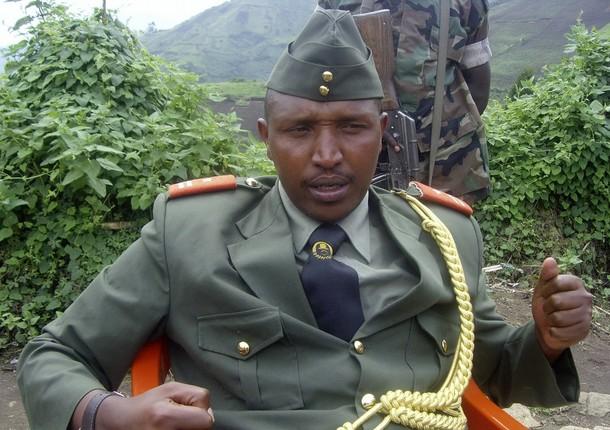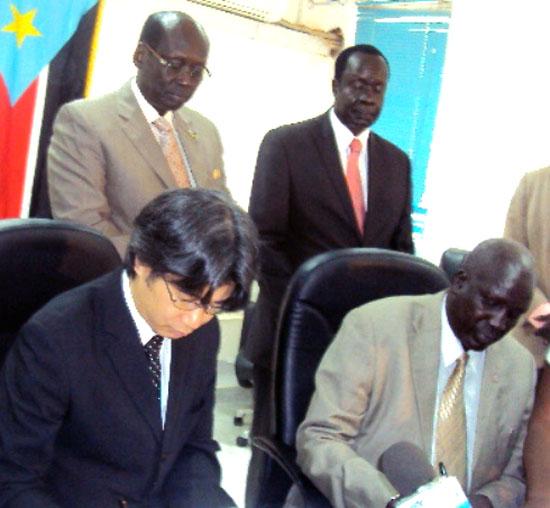Bosco Ntaganda: next stop The Hague for The Terminator? – By Kris Berwouts

Killer King
On March 18th 2013, Bosco Ntaganda walked into the American embassy in Kigali and requested to be delivered to the International Criminal Court (ICC) in The Hague. The ICC had issued an international warrant against him in 2008 and for war crimes and crimes against humanity in 2003, which he committed in 2002 and 2003 as a warlord in Ituri. The accusations included recruiting and deploying child soldiers, murder, rape and sexual slavery.
The events of the last years involving Bosco are well known, but I will briefly recap here: Bosco Ntaganda was second in command in the CNDP after Laurent Nkunda. When Nkunda was arrested in January 2009, the governments of Rwanda and Congo put Ntaganda in command of the rebellion. The integration of the CNDP into the FARDC crystalised around him and he received, despite the international warrant, an elevated position in the Congolese national army.
Through the following years, the CNDP kept its own structure within the army – it maintained its own parallel lines of command, but also its internal divisions remained intact. This meant many CNDP soldiers at all levels stayed loyal to Nkunda and never forgave Bosco for playing a major role in the scenario that led to the arrest of their charismatic (former) leader.
A new rebellion
In early 2012 it looked like it might be the end for Bosco. Kabila had just been re-elected in very controversial elections and had lost a lot of his support inside Congo and within the international community. His international partners expected a clear sign of good will and democratic openness. There weren’t too many opportunities to do this, so Kabila was forced to consider cooperation in a couple of areas.
The first was to appoint a Prime Minister from the opposition, but for various reasons this was unrealistic. The second option was to arrest the wanted war criminal Bosco Ntaganda and deliver him to international justice. A consensus with the Rwandans was easily found: Bosco had been heavily involved since 2009 in the Northern Kivu mineral trade – that is not something you can do without damaging the interests of high placed people within both the Rwandan and Congolese armies. Bosco’s fate seemed sealed.
Bosco, however, anticipated his arrest by withdrawing with a handful of loyal soldiers in to the hills of North Kivu. Other frustrated soldiers joined him in April and May and it developed into a new rebellion, M23, another movement led by Tutsi officers from North Kivu. As was the case with previous such rebellions (RCD and CNDP), M23 was actively supported by Rwanda. For many months the rebellion, with its few hundred soldiers, controlled a small area in Rutshuru. But when they conquered Goma on November 20th 2012 with a firm military back up from Rwanda, things changed. All of a sudden, the risk that the violence would erupt in to a new national or international war became real.
Addis Ababa
A heavy diplomatic offensive was launched with a leading role for UN Secretary General Ban ki Moon himself, which materialised in a Framework Agreement for the Great Lakes region. That Agreement, signed on February 24th 2013, involved not only Congo and its immediate neighbours, but also the wider region, including SADC and the African Union. Two key elements of the Agreement were the appointment of a Special Envoy of the UN for the Great Lakes region (the former president of Ireland Mary Robinson was appointed on March 18th) and a reinforcement of the UN force in Congo: extra soldiers, coming from SADC countries, with a stronger mandate than the existing Monusco one.
These reinforcements haven’t arrived yet, but the fact that they will eventually has caused a lot of unrest among the armed groups in Kivu. The arrival of the new troops will change the power balance in the field, so it was foreseeable that new violence would burst out between the signing of the Framework Agreement in Addis Ababa and the deployment of the new international troops.
War within M23
And it did. Initially confrontations took place within M23, more precisely between Sultani Makenga, the commander in chief of the rebellion (close to Nkunda), and Bosco. On top of the traditional cleavages between the two camps was the strategic question of how to position the movement against the background of the Framework Agreement and other negotiations. It was clear that Makenga was much more eager than Bosco to finalise the negotiations with the government and come to some sort of integration.
Immediately after the violence within M23 erupted, it became clear that Rwanda actively pressurised M23 officers to join Makenga’s camp – this being a way to finish a war which has cost Rwanda a lot, as well as Congo. It looks like the two countries are searching for a soft ending, which will crystalise around Makenga. By integrating him in to the army, they hope to establish some sort of balance, redolent of that which existed after the CNDP integrated FARDC at the time of Umoja Wetu (January 2009) and before M23 took off (April 2012).
Bosco’s decline
During the last week it became clear that Bosco’s camp was about to collapse in its face-off with Makenga’s troops. The pressure increased with every passing day. On Monday he turned up in Kigali, presented himself to the American embassy and asked to be handed over to the ICC.
An unexpected twist maybe, but not too difficult to understand. Bosco did not have very many other options. The group of people he could rely on, politically or military, in Rwanda, Congo or elsewhere, was becoming smaller every day. The arrest warrant he carries with him has destroyed his chance for a dignified exit with new functions or responsibilities. Finally he had to choose between fighting himself to death or to surrender.
He chose the latter. In their first communication, both Rwanda and the United States made efforts to make us believe that they were not informed in advance, but some research and phone calls in to Bosco’s environment, as well as with those initiated in Rwandan decision making, quickly provided a different picture. Bosco crossed the border on Saturday night with a few dozen fighters. A unit of the Rwandan army were waiting and disarmed them. The bulk of the troops were sent to a refugee camp of Congolese Tutsi, those who needed medical care (and there were many) were brought under supervision to the hospital at Gisenyi. Bosco himself was transferred to Kigali, where the next day he presented himself to the U.S. Embassy.
Next stop The Hague?
It looked like, and I have independently confirmed this, that it was a meticulously well prepared scenario with clear arrangements between Rwanda, the USA and Bosco himself. It remains to be seen if Bosco will be sent to The Hague. After all these years, Bosco has a lot of sensitive information, not only on both Rwanda and Congo, but also on the arrangements made between the two countries since the official end of war in 2003. I imagine that the two countries would consider an international process, highly scrutinised by the media, to be nothing less than a nightmare.
It is reasonably likely that Bosco will go to The Hague, but probably not immediately. There were presumably some complex negotiations before he crossed the border and presented himself to the embassy, but I don’t expect the forthcoming discussions between Bosco, Rwanda, Congo and the international diplomacy before his departure to Holland to be any less complex. Unless they decide to keep him in a limbo like Nkunda.
Kris Berwouts has, over the last 25 years, worked for a number of different Belgian and international NGOs focused on building peace, reconciliation, security and democratic processes. Until recently, he was the Director of EurAc, the network of European NGOs working for advocacy on Central Africa. He now works as an independent expert on Central Africa.






The arrest of Bosco Ntaganda; I mean ” a negociated arrest” would make a new era of analysis with regards to the tutsi strugglle in kivu region. Sultani Makenga seems to be the one who remains as” garde foux” if the negociation between the RD Congo governement and a disorganized M23 failed.the same senario will again happen again and again. Trully these negociations are outside of the really problemes of Congo. Sultani Makenga is the future Bosco Ntaganda. The question is to find who is behind Sultani Makenga? what is the really reason of the War within M23? wait and see